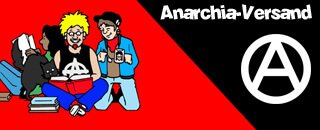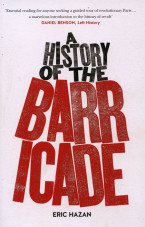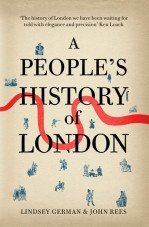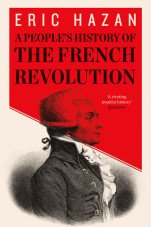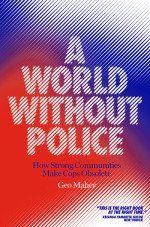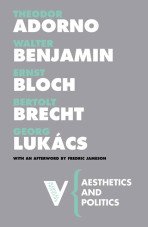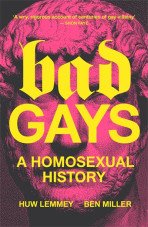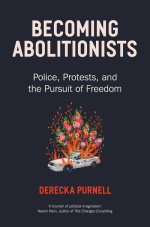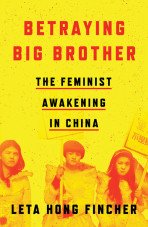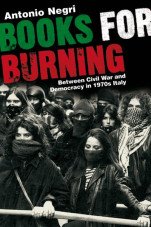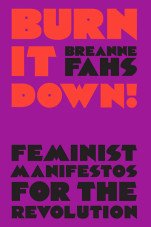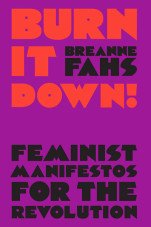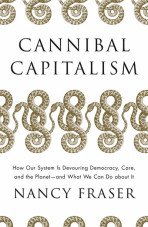Verso books
In the history of European revolutions, the barricade stands as a glorious emblem. Its symbolic importance arises principally from the barricades of Eric Hazan’s native Paris, where they were instrumental in the revolts of the nineteenth century, helping to shape the political life of a continent. Hazan traces the many stages in the barricade’s evolution, from the Wars of Religion through to the Paris Commune, drawing on the work of thinkers throughout the periods examined to illustrate and bring to life the violent practicalities of revolutionary uprising.
Autor*innen: Eric Hazan
Yet, for nearly 2000 years, the city has been a breeding ground for radical ideas, home to thinkers, heretics and rebels from John Wycliffe to Karl Marx. It has been the site of sometimes violent clashes that changed the course of history: the Levellers’ doomed struggle for liberty in the aftermath of the Civil War; the silk weavers, match girls and dockers who crusaded for workers’ rights; and the Battle of Cable Street, where East Enders took on Oswald Mosley’s Black Shirts.
Autor*innen: John Rees; Lindsey German
Looking at history from the bottom up, providing an account of working people and peasants, Hazan asks, how did they see their opportunities? What were they fighting for? What was the Terror and could it be justified? And how was the revolution stopped in its tracks? The People’s History of the French Revolution is a vivid retelling of events, bringing them to life with a multitude of voices. Only in this way, by understanding the desires and demands of the lower classes, can the revolutionary bloodshed and the implacable will of a man such as Robespierre be truly understood.
Autor*innen: Eric Hazan
Tens of millions of people poured onto the streets for Black Lives Matter, bringing with them a wholly new idea of public safety, common security, and the delivery of justice, communicating that vision in the fiery vernacular of riot, rebellion, and protest. A World without Police transcribes these new ideas - written in slogans and chants, over occupied bridges and hastily assembled barricades - into a compelling, must-read manifesto for police. A World without Police argues that abolition is not a distant dream or an unreachable horizon but an attainable reality. In communities around the world, we are beginning to glimpse a real, lasting justice in which we keep us safe.
Autor*innen: Geo Maher
No other country and no other period has produced a tradition of major aesthetic debate to compare with that which unfolded in German culture from the 1930s to the 1950s. In Aesthetics and Politics the key texts of the great Marxist controversies over literature and art during these years are assembled in a single volume. They do not form a disparate collection but a continuous, interlinked debate between thinkers who have become giants of twentieth-century intellectual history.
Autor*innen: Theodor Adorno; Walter Benjamin; Ernst Bloch; Bertolt Brecht; Georg Lukács
Part-revisionist history, part-historical biography and based on the hugely popular podcast series, Bad Gays subverts the notion of gay icons and queer heroes and asks what we can learn about LGBTQ history, sexuality and identity through its villains and baddies. From the Emperor Hadrian to notorious gangster Ronnie Kray, the authors excavate the buried history of queer lives. This includes fascist thugs, famous artists, austere puritans and debauched bon viveurs, Imperialists, G-men and architects. Together these amazing life stories expand and challenge the mainstream assumptions of sexual identity.
Autor*innen: Huw Lemmy, Ben Miller
Autor*innen: Derecka Purnell
Autor*innen: Leta Hong Fincher
Long before Antonio Negri became famous around the world for his groundbreaking volume Empire, he was infamous across Europe for the incendiary writings contained in this book. Books for Burning consists of five pamphlets that Negri wrote between 1971 and 1977, which attempt to identify and draw lessons from new conditions of class struggle that emerged in the course of the 1970s.
Autor*innen: Antonio Negri
Autor*innen: Breanne Fahs (Editor)
Autor*innen: Breanne Fahs (Editor)
Capital is currently cannibalizing every sphere of life-guzzling wealth from nature and racialized populations, sucking up our ability to care for each other, and gutting the practice of politics. In this tightly argued and urgent volume, leading Marxist feminist theorist Nancy Fraser charts the voracious appetite of capital, tracking it from crisis point to crisis point, from ecological devastation to the collapse of democracy, from racial violence to the devaluing of care work. These crisis points all come to a head in Covid-19, which Fraser argues can help us envision the resistance we need to end the feeding frenzy.
Autor*innen: Nancy Fraser




